Culture
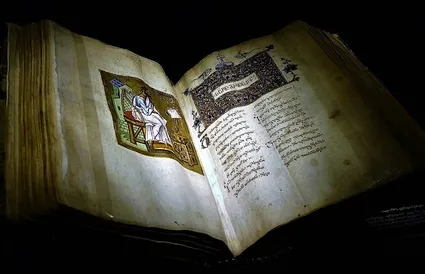
Georgian Culture
One of the first things that comes to everyone's mind who has ever heard of Georgia is Georgian polyphonic singing. Since 2001, Georgian polyphonic singing has been on the list of UNESCO's intangible cultural heritage, and it is one of the most unique types of singing in the world. It is widely believed that in Georgia everyone is a singer, and we have to partially agree with this statement. Throughout the centuries, Georgians used singing as a method of coping with difficult situations and as a way of expressing excitement, grief, and happiness, and the polyphonic songs are exactly the expression of emotions in daily life and different lively situations. Georgians would sing during weddings, wars, while doing daily chores, while making wine, and so on, on almost every occasion. That’s why Georgian polyphonic songs are as mirrors representing the unique history of our country, and they are quite old. Scholars discovered musical instruments that date back to before the beginning of our millennia. Today, Georgian polyphonic songs are not used for the same reasons as thousands of years ago, but they remain brilliant representations of our culture. The same can be said about Georgian folk dances. In 1937, in Tsalka, Georgia, there were archaeological excavations. During those archaeological excavations, graves of Trialeti and a lot of treasure were discovered, which adorn the National Museum of Sergo Janashia today. One of the discovered artifacts was a silver bowl that was used for religious ritual purposes. A very important fact about this bowl is that it has very vivid carvings of masked hunters ritualistic dances. This bowl is dated to the second millennium B.S. So, it is proof that Georgian folk dances as well as folk songs have existed for a long time and had practical, ritual, and religious purposes. In the beginning, they were used as religious dances for hunting, war, etc. Later, with the development of agriculture, they became ritualistic for the fertility of the land. In modern times, dances have a huge role in the everyday lives of Georgians. They are part of the Georgian "supra" traditional feast, which is another important cultural occasion. About more parts of our culture, you can hear from our knowledgeable guides.
Generally, Georgian culture is a unity of many different customs, traditions, dances, songs, and behaviors. It is also a mixture of many different cultures around the world. For centuries, Georgians were under the occupation of Eastern nations like Arabs, Turks, Persians, Mongols, and more recently, Russians; therefore, all of those nations left their mark on Georgian culture, language, literature, traditions, and everyday life. Georgian culture has become a symbiosis of many aspects coming from different parts of the world and has developed into one of the most open and hospitable cultures in the world.
When speaking about Georgian culture, we cannot forget the Georgian language and the three different types of scripture that we have. We cannot forget unique literature, writers, and poets like Shota Rustaveli, Galaktion Tabidze, and many more.
Here we will discuss Georgian celebrations, beliefs, traditions, and tips, so it is easier for you to explore our country as an insider.
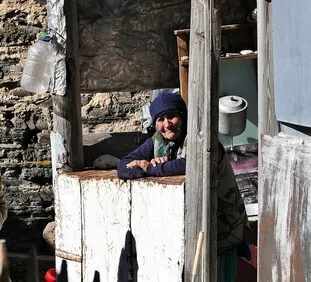
Georgian Hospitality
"A guest is a gift from God" is an old Georgian folk saying that describes a reality that has been active for centuries in beautiful, sunny Georgia. Georgians are famous around the world for their hospitality, and this is not only a saying. It is the truth. Georgian hospitality is a complex tradition developed through the difficult history of the country, where the only means of survival and maintaining identity was helping each other. It was so important that even households were arranged accordingly. In the western part of Georgia, in the regions of Adjara and Samegrelo, traditional households have additional parts, and those are guest rooms. These guest rooms are not typical guest rooms that you find in modern houses, not at all. Those are special rooms with fireplaces located separately from other parts of the house; their entrances are also made separately, so the guest or a traveler could get into the guest room without even communicating with the host of the house. In the room, the guest would have some food and wood for lighting the fireplace. He had the choice to rest for some time and only say hello to the host family in the morning. Some guests could even leave without saying anything to the family, and the family would understand only later that they had a guest in the house. So those guest rooms were a necessity, provided by local families. Traditions of hospitality had become the inspiration of famous Georgian poets; for example, the poem of Vaja-Pshavela, "Stumar Maspindzeli", is famous around the world.
Georgians were famous for their hospitality in the USSR. Anyone who lived in those times will tell you that any Georgian would meet you with an open heart, a warm smile, and a bottle of wine. Georgians were known as open, easy-going, and always welcoming people; this continues today, and one of the main reasons Georgia is so attractive is Georgian hospitality.
Even if you don’t speak Georgian and need any help, locals will always be happy to give you directions or even follow you to your destination. They are always happy to see foreigners, and you will be no exception!
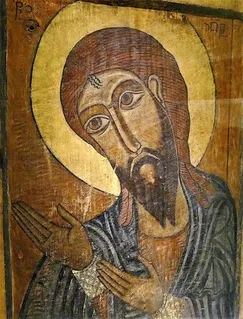
Georgian Traditions and beliefs
"Years ago, my uncle went hunting; he spent 3 days in the forest around Heshkili trying to hunt white-tailed deer. He came back exhausted and without any games. He hasn’t mentioned a word about those days he spent in the forest ever since. He never spoke about the hunting anymore. We think that he had a chance to meet our goddess Dali; that’s why he is silent about those days." - This is a story we heard from a local driver in Mestia, and this is not the only person who speaks about the goddess in Georgia. If you move a bit further and go to Samegrelo, you can hear stories about a similar deity. Tkashmapa, in translation, "queen of the forests," is a young, beautiful woman with golden hair who lives in the forests and gives luck to the hunters. She might as well engage in romantic activities with them and also bless or curse them according to her wishes. She is the protector of all animals and forests. Georgian mythology is quite rich, with a number of creatures and countless stories that were widely believed throughout the centuries.
Georgia is a land of beliefs, legends, and traditions, and considering the country’s past, this is totally logical. When you imagine the hardships Georgians have gone through in their history, you understand that only those people who strongly believed in something divine could overcome the hardships, and this is where religion played the biggest role in the lives of people because religion became a shield of its kind and a part of Georgian identity. Mythology is very interesting, but the Georgian belief system isn’t only based on it. It's the unity of traditions, religion, and the way of life. All the things mentioned above play an immense role in the Caucasus. Georgians have been Orthodox Christians since the 4th century A.D., and religion plays a huge role in the everyday lives of Georgians. Except for the Christians you can meet here, there are Muslim, Jewish, and Yezidi communities, and religion is extremely important for all of them. In rural areas, religion is mixed with ancient pagan beliefs and traditions that have survived. For example, animal sacrifices are still practiced in many parts of the Caucasus; they are even allowed by the Armenian church, but we definitely know that those traditions come from pagan beliefs. There are a lot of traditions in Georgia. One of the most famous and practiced traditions is the tradition of hospitality and local feasts.
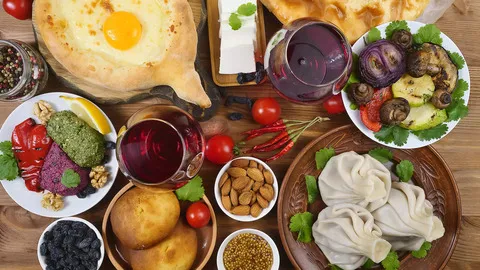
Supra
Tradition of the Feast
If you were lucky enough to appear at a private family celebration in Georgia, it could be anything: a wedding, a birthday, Saint George’s Day, Easter, New Year's, or really anything else. You will come across a Georgian traditional feast called Supra. As you already know, Georgia is the oldest wine producer. Wine is an essential attribute of Georgian tables, and a toast master is the head of the table. His name in Georgian sounds like "Tamada," and he is the one who controls the situation at the table and during the feast. He is normally chosen by family members and is a well-respected person in the community. Were you thinking that toasts are similar to toasts in European or American culture? You were mistaken. Georgian toasts often involve stories, mythology, and even historical facts. They are quite long, sometimes funny, and often very emotional, and the toastmaster's aim in many cases is to emotionally bond people on the table to a general idea of the toast. To bring up their respect and empathy towards general ideas that unite the people of the feast. There’s also a hierarchy of toasts on the Georgian table, and they are almost endless. As a man being part of this feast, you are often required to express respect, and respect can be measured by the level of wine in your glass; the more wine, the less respect you have for what the toastmaster says. This is not all; there are many rules and regulations that apply to the Georgian traditional feast of Supra. It is also popular for practical reasons. In Georgia, many things depend on connections, friendships, and the community around you. That’s why Sufras are good places to make new friendships or even fall in love.
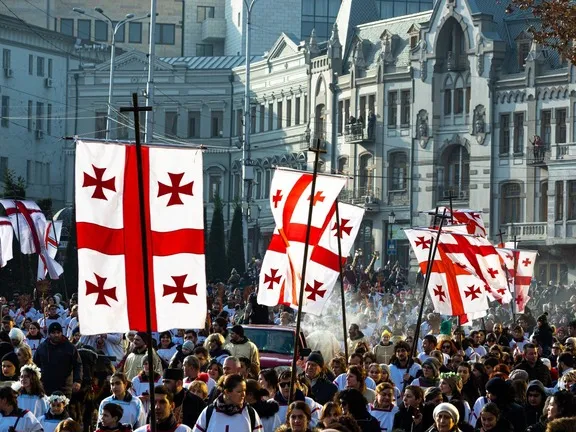
Two New Years
New Year's celebrations in Georgia are one of the longest. Imagine 14 days of nonstop celebrations. Heaven for all? Isn’t it? Surely. This is happening because Georgians celebrate the New Year on the 1st of January, the Day of Destiny on the 2nd of January, Christmas on the 7th of January, and the Old New Year on the 14th of January. During these days, locals make feasts at home, and everybody has a traditional table with loads of food, sweets, and wine. A special sweet that is made specifically for the New Year is called Gozinaki. During those 14 days, people see their forgotten friends, relatives, and old mates. People constantly visit each other and make constant feasts. There are concerts, and the capital, Tbilisi, is decorated magically. There are lots of Christmas markets held each year, and generally, this is one of the most important celebrations in Georgia.
